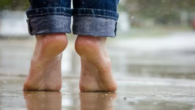
Scientists have studied how daytime sleep affects mental abilities
0
Many of us like to smoke in the afternoon, making up for the precious minutes of sleep that we sacrificed with the early rise. And if doctors advise everyone to get a full eight-hour sleep, then everything is not so clear with daytime sleep. Some say that it is necessary, others that there is nothing useful in it. But recently, a study has appeared, according to which daytime sleep can improve mental abilities.
A study published in the journal General Psychiatry found that regular daytime naps can actually improve the brain's mental performance. To come to this conclusion, the researchers studied 2,214 healthy people aged 60 and over in Chinese cities, namely Beijing, Shanghai and Xi'an. They found that 1,534 subjects regularly slept after dinner, while the remaining 680 did not. At the same time, both groups slept an average of six and a half hours at night, and those who slept during the day got from five minutes to two hours of extra sleep after dinner.
Each participant also underwent medical examinations, such like the Brief Mental State Examination (MMSE) to see if they had dementia. These tests included 30 different measures of cognitive strength and functioning, such as visuospatial skills, working memory, attention, problem-solving skills, spatial awareness, and verbal ability. The results showed that those who napped during the day had higher scores on the MMSE.
However, the research team notes that more research would be useful on this topic, as the specific amount of sleep time varies between participants. They are also sure that when people sleep at lunch time, they recover faster from various diseases. “Sleep regulates the body's immune response, and daytime sleep is thought to be an advanced response to inflammation in the body; people with a higher level of inflammation also sleep more often,” the researchers explained.









Leave a Reply